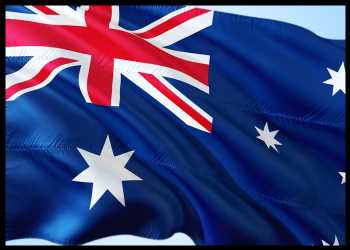Australia Business Conditions Continue To Weaken As Economy Slows
Reflecting the slowdown in the economy, Australia’s business conditions weakened for a third month in a row in December and are likely to ease further, while sentiment logged a moderate improvement, survey results from the National Australia Bank showed Tuesday.
The NAB business conditions index fell eight points to 12 in December. However, the indicator remained well above the average, reflecting the extraordinary strength seen in early-to-mid 2022.
The fall in conditions was driven by declines in all three subcomponents, namely trading conditions, profitability and employment. Moreover, the deterioration was broad-based, with conditions weakening in all sectors.
Leading indicators suggested that conditions are set to ease again in the coming months with forward orders edging down. Capacity utilization also weakened further.
Meanwhile, the business confidence index rose three points to -1 in December. The improvement was seen across most industries, with the exception of transport and utilities. Overall, in trend terms, confidence is strongest in recreation and personal, and construction.
The survey showed that price and cost growth slowed in December but remained elevated.
Read more: Australia Jobless Rate Steady At 3.5%
“Cost pressures still remain elevated as do output prices and would need to slow further to see inflation ease back to the RBA’s target band,” NAB Chief Economist Alan Oster said.
That said, all three measures of inflation – input and output prices, including labor costs, and product prices continue to ease and, if that trend continues, the peak in inflationary pressures may have already been passed in the fourth quarter of 2022, NAB said.
Oster said momentum in the economy is clearly slowing though activity remains solid. Although price pressures are evident, they are easing as supply chains, freight costs and fuel input prices ease.
The S&P Global/Judo Bank Purchasing Managers’ survey showed that the private sector contracted for the fourth consecutive month in January as lower output was registered in both service and manufacturing sectors.
Although the composite output index rose to 48.2 in January from 47.5 in the previous month, the score has remained neutral 50.0 mark.
The manufacturing sector slipped into contraction territory in January with a 32-month low manufacturing PMI score of 49.8.
The Reserve Bank of Australia has been tightening its monetary policy since April 2022 to tame high inflation. The board expects to increase interest rates further over the period ahead. The board next meets on February 7.
Read more: Australia Consumer Confidence Logs Biggest Monthly Rise In 21 Months
Source: Read Full Article

